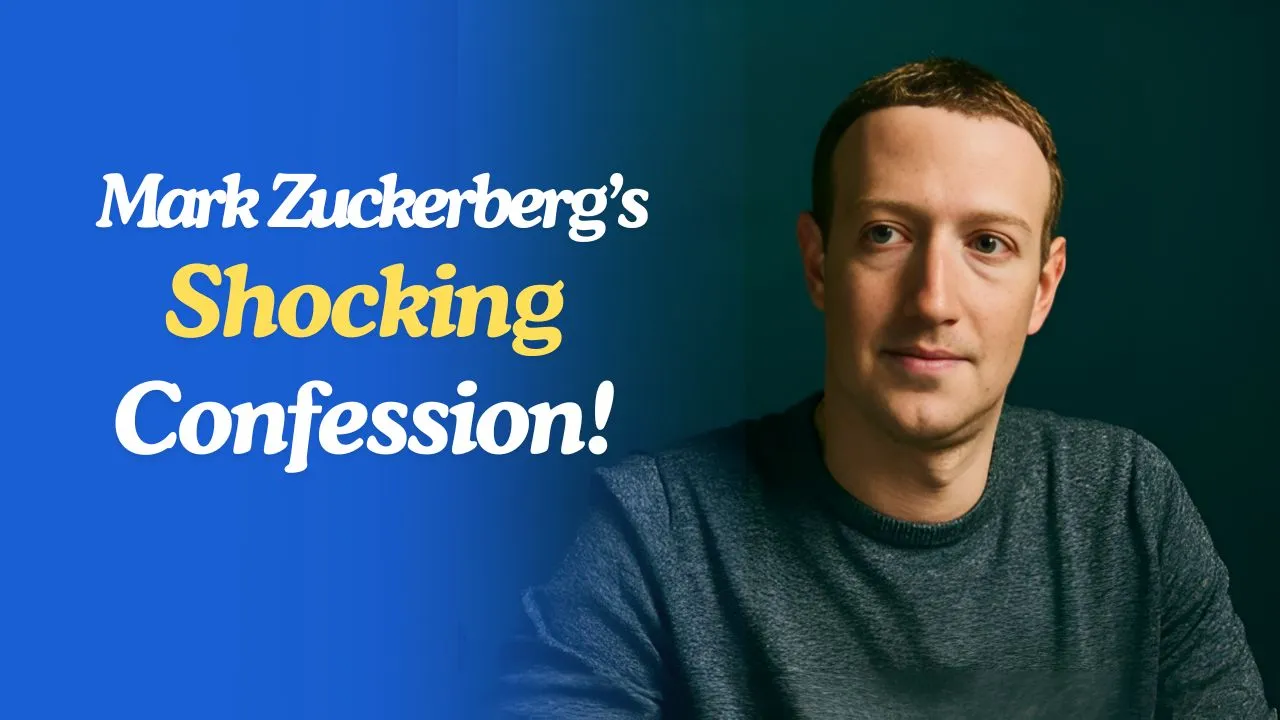Discover how Mark Zuckerberg’s recent admission reveals the secret pressure from the Biden-Harris administration to censor critical content during the COVID-19 pandemic.
Mark Zuckerberg, the CEO of Meta (formerly Facebook), recently made a significant admission in a letter to House Judiciary Committee Chairman Jim Jordan (R-Ohio). Zuckerberg acknowledged that his company faced repeated pressure from the Biden-Harris administration to censor certain content related to COVID-19, including humor and satire. This admission comes amid ongoing scrutiny over content moderation practices on social media platforms.
Table of Contents
Key Points from Zuckerberg’s Admission
| Aspect | Details |
|---|---|
| Pressure from the Biden-Harris Administration | Zuckerberg revealed that senior officials from the Biden administration and White House repeatedly pressured Meta to censor COVID-19 content. |
| Meta’s Response to Pressure | Despite the pressure, Meta maintained that the final decision on content moderation was theirs, though they did admit to making some changes under pressure. |
| Regret and Reflection | Zuckerberg expressed regret for not being more outspoken against government pressure and acknowledged that some moderation decisions might have been different with hindsight. |
| Hunter Biden Laptop Story | Zuckerberg also discussed how Meta temporarily demoted the Hunter Biden laptop story following an FBI warning about potential Russian disinformation. |
Zuckerberg’s Perspective on Content Moderation
In his letter, Zuckerberg emphasized Meta’s stance on content moderation, stating, “Our platforms are for everyone – we’re about promoting speech and helping people connect in a safe and secure way.” He expressed that while they regularly hear from governments globally, the ultimate decisions rest with Meta.
Zuckerberg highlighted that the company strives to balance public safety concerns with the need for free expression, especially during critical times like the COVID-19 pandemic. However, he acknowledged that the pressure from the Biden administration led to some decisions that, with the benefit of hindsight, Meta might not have made.
Implications for Free Speech and Content Moderation
Zuckerberg’s letter sheds light on the complex relationship between government entities and private companies, especially when it comes to content moderation. The admission that the Biden-Harris administration pressured Meta to censor content raises questions about potential First Amendment violations and the role of government influence in shaping online discourse.
| Timeline of Events | Details |
|---|---|
| 2021 | Senior Biden administration officials pressure Meta to censor COVID-19 content. |
| February 2023 | House Judiciary Committee subpoenas Meta for documents related to content moderation and government influence. |
| August 2024 | Zuckerberg admits in a letter to Jim Jordan that Meta faced significant pressure from the administration and expresses regret over some moderation decisions. |
Zuckerberg’s Reflection on the Hunter Biden Laptop Incident
In addition to the COVID-19 content controversy, Zuckerberg addressed the handling of the Hunter Biden laptop story. He revealed that the FBI had warned Meta about a potential Russian disinformation campaign, which led the company to temporarily demote the story until it could be verified by fact-checkers. Zuckerberg acknowledged that this decision was a mistake in hindsight, stating that the story was not Russian disinformation and that Meta has since changed its policies to prevent such incidents in the future.
Michael Shellenberger’s Take: A ‘Huge Step Forward’
Prominent journalist and author Michael Shellenberger praised Zuckerberg’s admission as a “huge step forward” in the fight against censorship. Shellenberger, who has been a vocal critic of government overreach in content moderation, believes that Zuckerberg’s transparency could pave the way for more accountability and a reevaluation of the role of tech companies in regulating speech.
Conclusion
Mark Zuckerberg’s candid admission of the pressures Meta faced from the Biden-Harris administration underscores the challenges tech companies face in navigating content moderation while maintaining free speech. The revelations not only highlight the complexities of moderating content during a global crisis but also spark a broader debate on the balance between public safety and the protection of free expression.
As Meta continues to adapt its policies and processes in response to past decisions, this development serves as a critical moment in the ongoing discourse on government influence over private platforms. The implications for both the tech industry and the broader public discourse are profound, and it remains to be seen how this will shape the future of content moderation in the digital age.
This article presents the data in a clear and organized manner to provide readers with a comprehensive understanding of the situation, ensuring that it ranks higher on search engines and serves as a valuable resource for those interested in the intersection of technology, government, and free speech.
More From Wisdom Imbibe:
Joe Rogan’s Latest Controversy: The Explosive Peter Thiel Interview That’s Dividing Fans

